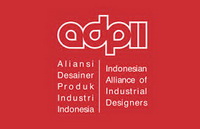Kajian ergonomi desain sepeda fixed gear (fixie)
Abstract
Fixed gear bike is a derivative of bike racing because its shape resembles a racing bike used in racing but the cost to make it is affordable to many circles. Ergonomics is the science that can be associated with the use of a bicycle as a tool that is directly related to humans. By using qualitative research method, science of ergonomics can be associated with fixed gear bikes. This research is conducted by observing fixed gear bike communal events, interviews to the bicycle designers and users of fixed gear bikes as well as literature describing ergonomics of fixed gear bikes. Fixed gear bikes are used for transportation by humans. They are used for long distance trips on the streets by the community in accordance with the form and the components of the fixed gear bikes; without of brake components, biking could endanger the user when driving it. Ergonomics is needed for fixed gear bikes because these bikes have a personal dimensions in accordance with they users. It is because fixed gear bikes are based on user needs.
Keywords: bikes, fixed gear, ergonomics
Full Text:
PDFReferences
Ikron, Djaja I M, & Wulandari, R.A. (2005) pengaruh kebisingan lalulintas jalan terhadap gangguan kesehatan psikologis anak SDN Cipinang Muara Kecamatan Jatinegara, Kota Jakarta Timur, Propinsi DKI Jakarta. Jurnal MAKARA Kesehatan Vol. 11 Juni 2007
Isman, R, E & Inman, V, T. (1969) Anthropometric studies of the human foot and ankle. Bulletin of Prosthetics Research, Biomechanic Lab. University of California, San Fransisco: San Fransisco Medical Center
McCormick, E. J. (1987) Human factor in engineering and design. 6thedition. Singapore:McGraw-Hill Book Company
Nurmianto, Eko (1996). Ergonomi: Konsep dasar dan aplikasinya, edisi kedua. Surabaya: Guna Widya
Santoso, Gempur (2004) Ergonomi manusia, peralatan dan lingkungan. Jakarta: Prestasi Pustaka Publisher
Subandi (2011) deskripsi kualitatif sebagai satu metode dalam penelitian pertunjukan. Jurnal HARMONIA, Volume 11, No.2 / Desember 2011
Sugiyono (2009) Metode penelitian kuantitatif kualitatif dan R&D. Bandung: Penerbit AlfaBeta
Susetyo, J. Oes T I dan Indonesiani (2008) Prevalensi keluhan subyektif atau kelelahan karena sikap kerja yang tidak ergonomis pada pengrajin perak, Jurnal Teknologi, Vol. 1 (2) Desember 2008
Tarwaka, Bakri, S.H.A & Sudiajeng, L. (2004) Ergonomi untuk keselamatan, kesehatan kerja dan produktivitas. Surakarta: UNIBA Press
Tilley, A.R. (2002) The measure of man and woman: human factor in design. New York: John Wiley & Sons, Inc. Wardani, Laksmi K. (2003) Evaluasi ergonomi dalam perancangan desain. Jurnal Dimensi Interior, Vol. 1 (1) Juni 2003 61 – 73
White, M, Robert. (1982) Comparative anthropometry of the foot, United States Army. Natick Research & Development Lab, Natick Massachusets, United States.
Wignjosoebroto, Sritomo (1995) Ergonomi, studi gerak dan waktu. Surabaya: PT Guna Widya
Wiyancoko, Dudy (2010) Desain sepeda indonesia. Jakarta: Kepustakaan Populer Gramedia
DOI: https://doi.org/10.24821/productum.v3i1.1734
Refbacks
p-ISSN 2477-7900 | e-ISSN 2579-7328

This work is licensed under a Creative Commons Attribution 4.0 International License.
Like & Follow Us










